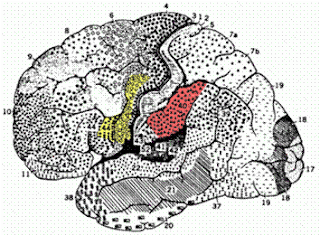This is a video of a popular show on ABC call "What Would You Do?" This show is very interesting because it is real life application and their experiments don't have to go through IRB's because they aren't accredited by an academic institution. This specific excerpt of the show is about racism, which is a very popular topic in psychology research currently and expected to grow.
As with everything in life from now on think about what you do because you never know who is watching!
Get Psyched!
Monday, December 13, 2010
Oh Watson.....
My least favorite psychology researcher is John Watson. From what I have read I feel like he was very arrogant. He raised his children emotionally detached and was extremely critical because he felt like everyone should raise their children this way. He also had an affair with a graduate student assistant that caused him to get fired from John Hopkins University. Watson performed "Little Albert" experiments where he experimented on this baby to be afraid of anything white and fluffy, and other experiments. Today this would be considered unethical. Later he joined the business world after loosing his university position. I know he made contributions to the field, but it is hard to have respect for him personally.
Agnosias
Agnosias are severe deficits in ability to perceive sensory information that are often caused by lesions. Psychology research in this area is usually case studies of people who have been in accidents that caused lesions on their brain and the agnosia to develop.
Some examples of agnosias:
Some examples of agnosias:
- Similtagnosia: inability to pay attention to more than one object at a time
- Spatial agnosia: severe difficulty in everyday environments (getting lost in your own house)
- Prospagnosia: inability to recognize human faces
- Auditory agnosia: no recognition of music melodies, even from your own collection
- Apperceptive agnosia: no ability to recognize familiar objects
- Akinetopsia: loss of motion perception (a woman in Zurich saw cars as a series of frames—she was afraid to cross the street).
The Magic Pill
Sometimes in psychology research as in other forms of research placeboes are used. A placedbo is described as a "magic pill" because it doesn't actually have any medical value to it, the only reason it is used is to make the experiment particants blind to which treatment group they are actually in. The psychological value is the important part, because we do not know what the mind is capable of so some participants in the placebo groups will have an improvement even though they weren't actually given anything.
I Feel For You With My Mirror Neurons
“Experiencing disgust and perceiving it in others appear therefore to have a common neural base…overlapping of the cerebral activations found following the inhalation of disgusting smells and during observation of expressions of disgust on the faces of other people confirms the hypothesis that the understanding of the emotive states of others depends on a mirror mechanism that codes sensory information directly in emotional terms” (Rizzolatti & Sinigaglia, 2006).
This shows that we really can feed off each others emotions to offer empathy. It also shows why we like to be around others because we are social creatures. We like to be around each other and that is also how we can tell how others are feeling.
This shows that we really can feed off each others emotions to offer empathy. It also shows why we like to be around others because we are social creatures. We like to be around each other and that is also how we can tell how others are feeling.
Where Are Mirror Neurons?
Adding to the previous post...
In the lateral view of the brain:
Reddish Area - Action execution and observed execution
Yellowish Area - Also activates
The wwo sectors form the action mirror neuron system in the brain.
In the lateral view of the brain:
Reddish Area - Action execution and observed execution
Yellowish Area - Also activates
The wwo sectors form the action mirror neuron system in the brain.
What Are Mirror Neurons?
“There are neurons in the brain that respond when a person or animal observes another person or animal carrying out an action. These same neurons also respond when the observer carries out the same action him- or herself.” (Goldstein, 2008)
These are important for psychology research because they could help us discover ways to learn more efficiently.
These are important for psychology research because they could help us discover ways to learn more efficiently.
Subscribe to:
Comments (Atom)



